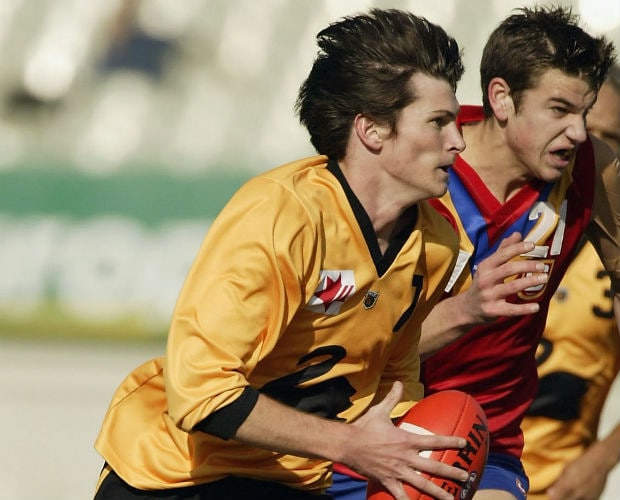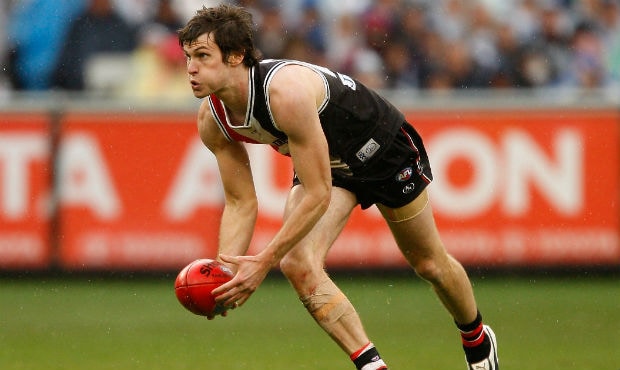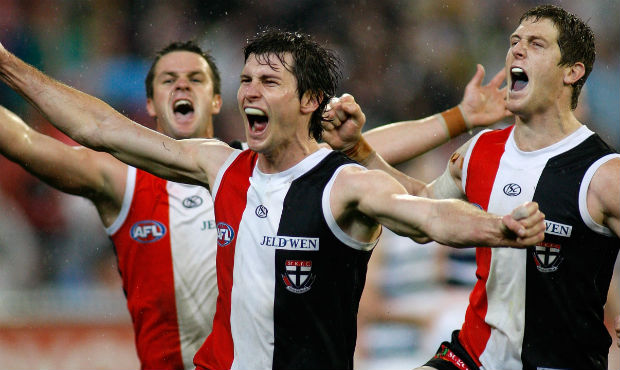WHEN Farren Ray arrived at St Kilda at the end of the 2008 there was no honeymoon period to acclimatise to the fresh culture and new teammates.
At a Leading Teams session early in the pre-season, Ray, who had played 75 games for the Western Bulldogs to that point, was told in no uncertain terms that although his running game was good, his inside grunt work needed significant work.
Ross Lyon’s team was coming off a losing preliminary final and the club’s leaders, led by Nick Riewoldt, were not interested in mincing their words.
As the 29-year-old prepares for his 200th game this Saturday, against his former club, he reflects on this confronting and raw feedback as a pivotal moment in his career but not the only time where he has been challenged.
“When I came in, I was very quiet. There were lots of big names at the club and I really had to start again. I was like a new rookie and that’s the way I treated it,” Ray told SAINTS.com.au this week.
“We did Leading Teams in the first couple of months and I sat out the front of these guys that I hardly knew. They said to me ‘look mate, we want you to be harder at the footy. We need you to be harder.’
“They identified that I was an outside player and told to me work on my inside game at every opportunity. That struck a chord with me and I was happy to cop it on the chin.”
Become a member today! Call 1300 GO SAINTS or visit HERE.
The club was on the brink of back-to-back Grand Final years in which Ray would play 50 out of a possible 51 games.
He saw the feedback as a challenge worth overcoming, a mantra that has stayed with the West Australian-born winger his entire career.
“Any setback I have I turn it into a positive and treat it as a challenge,” he said.
“In terms of stats, you would say that those were my best years. But that would be the same as the entire team.
“It’s easier to play in a winning team. I would say that my best years have been more recently, in a team that hasn’t been as successful. I’ve faced a bit of adversity the last few years.”

Farren Ray playing for Western Australia in the 2003 National Championships.
Drafted with pick four in the 2003 National Draft, Ray lived with a host family next door to Bulldogs legend Chris Grant in Williamstown, before moving in with some teammates.
Adam Cooney was pick one in the same draft, while Andrew Walker was selected with the second selection. Ray, Cooney and Walker are the only top 10 picks still on AFL lists from that draft.
“Being a pick four, I was rated highly and judged pretty harshly,” he said.
“That’s what comes with being a high pick. I’m proud of playing 200 but I want to play more.”
Initially he was homesick. As a 17-year-old who had only taken up footy when he was 14, Ray played seven games in his first year at The Kennel.
Towards the end of the 2008 season, he was dropped from Rodney Eade’s team for a winning semi-final against Sydney and did not regain his place for the preliminary final the following week.
For Ray, as with any player in that position, it was a bitter pill to swallow.
“It was a tough decision to request a trade from the Bulldogs but I don’t regret doing it. I had good mates there but I wasn’t going to let anything get in the way of me playing consistent senior footy,” he said.
“I met with Ross Lyon and we identified that the Saints needed a running player, so it was a good fit.”

Ray during the 2009 Grand Final.
On October 9, 2008, Ray officially became a Saint. He, along with draft pick 48, went to St Kilda, in exchange for pick no.31.
He was tempted to go back to Western Australia, but by then the homesickness had subsided.
“I met with a couple of other clubs but I had become settled in Melbourne by that stage,” he said.
“It actually took me a couple of years to like Melbourne and then I really started to love it.”
A 23-year-old Ray played against his former team four times in his first year at St Kilda – once in the pre-season, in rounds six and 17, and then again in a winning preliminary final.
“The 2009 preliminary final got the better of me,” he conceded.
“I’d done well against my old mob earlier in the year, but that was a tough match. I handled it a bit better in 2010.”
One of Ray’s best qualities is his perspective. He does not possess the powerful physique of Patrick Dangerfield, or the bold dash of Jack Steven. But what he is, and has always been, is a tremendous link player and an exceptionally hard worker.
From round 16, 2013, to round nine last year, Ray’s possession tally did not drop below 20 disposals. That is 17 consecutive games of reliable, team-first, consistent football.
“I’ve been a role player my whole career,” he said.
“I’ve never kicked a whole heap of goals and although I’m working on that, I’ve always been a link player.”
But following St Kilda’s loss to West Coast in round 14 last season, he was dropped.
At 28 years of age, and with a groundswell of young players gunning for a spot in the senior team, Ray refused to let his omission get the better of him.
“In terms of where my career sat, that didn’t cross my mind. Not one bit,” he recalled.
“I love to prove people wrong, and I’m not saying that Richo was wrong to drop me, my form wasn’t good enough at that point. I know where I sit with Richo and I think he just wanted me to get better and find form again.”

Ray celebrates winning the 2010 Qualifying Final against Geelong with Adam Schneider and Nick Dal Santo.
And then in the first NAB Challenge game of the season in February, Ray tore his hamstring off the bone and was forced into surgery. Where a less experienced player may have felt a sense of woe is me, Ray was resolute in his determination to return to the senior team, which he did against Hawthorn in round 10.
As he puts it, it was just another ‘blip on the radar.’
“It wouldn’t be a career if you didn’t have setbacks and hurdles along the way,” he said.
“It hasn’t been smooth sailing but I don’t think 200 games for any player is smooth sailing. The time on the sidelines did give me a different perspective.
“I’ve had a great run with injuries, touch wood, and there are some guys out there that have a horror run.”
Evidently, the obstacles Ray has encountered have only made him better, and he is not done yet.
“I want to play finals again,” he said.
“I also want to keep improving and 29 is not that old in today’s game. I still have some good years left in me and I’m a wiry player, which could help with my longevity.
It was great sitting near @jack_billings parents yesterday. The joy football can bring to family members is quite incredible!! @stkildafc
— Farren Ray (@farrenray1) May 10, 2015
“Richo knows that I will run and help out in the backline and be that player through the midfield, but it is my inside game that I’m always working on.”
“Last year we won four games. If you go through years and years of winning so few games then I’m sure the motivation levels would drop. But that’s what motivates me every day, the belief that I can be a part of a team that plays finals again if we work hard enough and do all the small things right.”
Given Ray’s history of conquering adversity, only the bravest punter would bet against him achieving his September ambition again.
To play 200 games is a significant footballing achievement in itself. But to ride the bumps like Ray has done over the past 12 years demonstrates not just on-field ability, but also off-field class and maturity that has him well-placed for a career after football.


